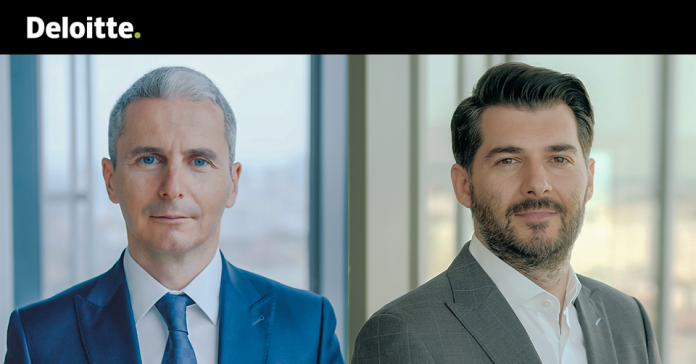The transition to circular economy slowed globally last year, as the vast majority of raw materials entering economies are still coming from virgin sources, while the share of secondary, reused materials has steadily decreased over the past five years, from 9.1 percent in 2018 to 7.2 percent in 2023, indicates the “Circularity Gap 2024” study, carried out by Deloitte and the Circle Economy Foundation.
The report shows that the areas of intervention that could reverse this trend are the agri-food, manufacturing, and construction industries, as they are intensively polluting sectors, high consumers of vulnerable raw materials, and, together, occupy more than three quarters of the global workforce.
The intensive exploitation of resources has been a key factor in the growth of economies, living standards and life expectancy over the last hundred years, but the impact of the classic, linear economic model (take, make, waste) is becoming unsustainable at a global level, the study explains, mentioning that in the last six years alone the world’s economies consumed almost 600 billion tons of materials, almost as much as in the entire 20th century, while six of the nine planetary balance systems, which measure the state of waters, soils and air, are irreversibly damaged.
By contrast, a sustained pace of transformations towards the circular economy (use less, use longer, make clean, use again) could contribute to reducing emissions by at least one third and creating two million jobs, within a “circularity” market that could reach USD 3 billion by 2026, the report also points out.
“The study draws attention to a fact that is hard to ignore: while the circular economy is recognized as a megatrend that has made its way into business strategies, figures that objectively indicate the progress of the transition have steadily declined over the past five years. In other words, the transformations towards the circular economic model do not keep pace with the increase in consumer demand and do not seem to be systemic. In fact, these are the directions for which the report suggests action: on the one hand, the need to prioritize essential sectors with a high environmental impact, such as agri-food, manufacturing and construction, and, on the other hand, the effort must synergistically involve business actors, the public sector and the civil society. We know from the study’s last year’s edition that circular economy can reduce by one third the current resource consumption without affecting the amount and diversity of goods and services, so sustainable transformation is possible,” declared Alexandru Reff, Country Managing Partner, Deloitte Romania and Moldova.
The intervention should take place in three simultaneous plans, taking into account not only environmental reasons, but also factors such as the effects of the pandemic and geopolitical tensions, the study recommends. First, it should include national and supranational policies, objectives, and compliance norms that prompt economic actors of all categories to begin the transition, thus creating unitary or comparable effects across value chains. Secondly, the intervention should address financial aspects, by increasing investments in transitional measures – technology refurbishment, eco-design, etc. –, as well as through a fiscal reform with an environmental component, the so-called “true cost accounting”, which also takes into account the environmental costs of the business. Thirdly, the study points to the need for continuous education and motivation of people towards a responsible and efficient lifestyle and consumption mentality.
“Starting from last year, Deloitte surveys the perception and the implementation stage of the circular economy in the local business environment through an yearly study, and the conclusions of the first edition have shown that although companies conduct research, develop strategies and investment plans, and take various measures related to optimizing the consumption of raw materials, to packaging and to designing and selling more sustainable products, the effort remains rather disparate and only half of the analyzed companies declared that their objective was to change their business model towards a circular one. Romania has one of the lowest percentages of circularity in the EU, of 1.4, according to Eurostat data for 2022, but, on the other hand, starting from 2023 we have a complete regulatory framework, policies and programs aimed at inducing the change of mentality along the entire value chain, to the final consumer, so we expect to witness developments, to which we are actually willing to contribute our expertise,” declared Adrian Teampău, Director, Circular Economy Advisory, Deloitte Romania.
Rethinking the current model of exploitation and consumption following a circularity logic will also positively influence the so-called curve of socioeconomic development at the global level, the study also indicates, reducing the gaps between countries and continents. Many regions in Africa and Southeast Asia still need to rapidly increase production capacity to reduce poverty and associated social risks. The study places these areas in the Build category and shows that, in their case, the increase in material consumption is justified by the objective of ensuring welfare and social stability, but it must be done by also taking into account urgent environmental problems; on the other hand, strong economies, which are placed in the Shift category (Europe, USA, etc.), or emerging economies, which are included in the Grow category (China, etc.), should create a so-called “ecological space” for the benefit of underdeveloped regions, by reducing or stabilizing their own consumption.




